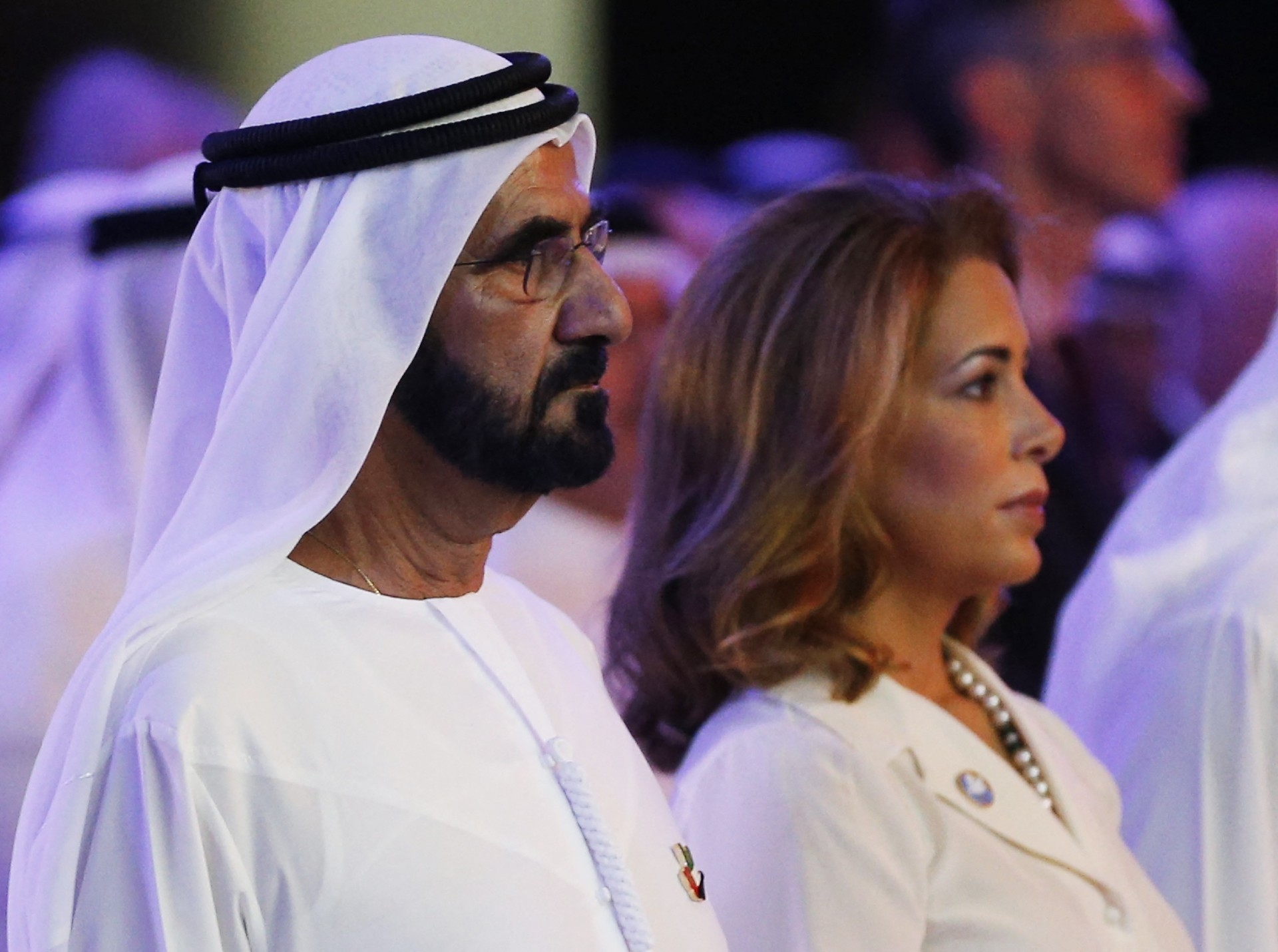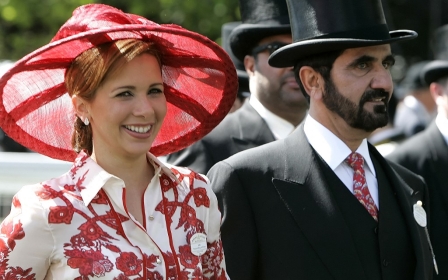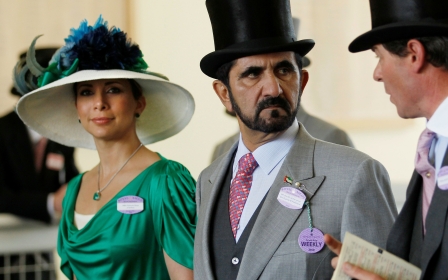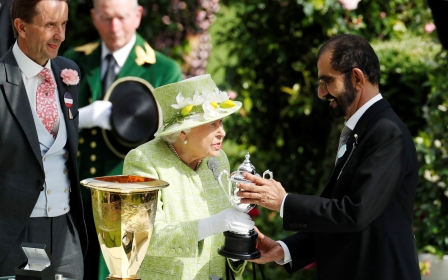Dubai ruler ordered to pay £500m divorce settlement by English court

Sheikh Mohammed bin Rashid Al Maktoum, the emir of Dubai, has been ordered by an English court to pay his ex-wife Princess Haya and their two children up to half a billion pounds as part of a divorce settlement.
In a ruling on Tuesday morning, Mr Justice Moor said Sheikh Mohammed was "uniquely" the main threat to Princess Haya bint al-Hussein, the half-sister of King Abdullah II of Jordan, and the children.
The money awarded to Princess Haya ensures lifetime security to her and the couple's two children. Moor said in a written statement: "She [Princess Haya] is not asking for an award for herself other than for security."
'Most importantly in this regard, and absolutely uniquely, the main threat they face is from Sheikh Mohammed himself not from outside sources'
- Mr Justice Moor
Haya told the court that a large one-off payment would allow her and her children a clean break from the emir during almost seven hours of testimony.
The court has directed Sheikh Mohammed to make a one-off payment of £251.5m within three months to upkeep her British mansions, including her Kensington home.
New MEE newsletter: Jerusalem Dispatch
Sign up to get the latest insights and analysis on Israel-Palestine, alongside Turkey Unpacked and other MEE newsletters
The payments will be guaranteed by a £290m security held by HSBC bank.
Despite the record-breaking amount of money ordered by UK courts to settle the custody battle, it was still less than half of the £1.4bn that Princess Haya had initially wanted. The last time UK courts granted an amount this large was in 2016, to the ex-wife of the Russian oligarch Farkhad Akhmedov, for £450m.
The legal saga between the two began in April 2019, when Haya fled to the UK after fearing for her safety as her marriage deteriorated. A month later, she asked the sheikh for a divorce.
The two began a legal battle over custody of their children in the High Court in London. In March 2020, a judge ruled that Sheikh Maktoum had waged a campaign of harassment against Princess Haya. The judge also concluded that the emir was keeping two daughters from another marriage, Shamsa and Latifa, captive after organising their kidnapping.
But earlier this year, another senior judge ruled that Sheikh Mohammed had ordered phones belonging to Haya and her lawyers to be hacked using the controversial Pegasus spyware.
As in May, Tuesday's judgement deemed the children at risk of being kidnapped by their father. Latifa was abducted off the coast of India in 2017, with Shamsa being taken from Cambridge and returned to Dubai in 2000. Latifa is now said to be living freely after a long campaign demanding her release.

Haya previously claimed that her marriage with the Sheikh began to dissolve when she took an interest in Latifa's wellbeing.
Moor said of the settlement: “I am entirely satisfied that this means that, although HRH [her royal highness Haya] and the children would require security provision in any event, given their status and the general threats of terrorism and kidnap faced in such circumstances, they are particularly vulnerable and need water-tight security to ensure their continued safety and security in this country.
“Most importantly in this regard, and absolutely uniquely, the main threat they face is from HH [his highness the sheikh] himself not from outside sources. This is compounded by the full weight of the state that he has available to him as seen by his ability to make use of the Pegasus software, which is only available to governments.”
Following the ruling, a spokesperson for the sheikh said he "has always ensured that his children are provided for".
During the court proceedings, it was uncovered that Haya had allegedly paid £7m to blackmailers on her security staff to keep an affair with a British bodyguard, Russell Flowers, a secret. The court heard that the money was taken from the children's account, with Haya justifying the withdrawal by saying that she was scared. Flowers is alleged to have been one of the blackmailers.
The court, however, did not hear from the supposed blackmailers.
The judge said that it was due to the "exceptional wealth" and "remarkable standard of living" that helped him decide on the settlement.
After producing a 73-page ruling, the judge explained how he came to the £554m sums, including holidays, staffing costs, and security.
The Sheikh, who has ruled Dubai since 2006, has an estimated £5bn fortune.
Middle East Eye delivers independent and unrivalled coverage and analysis of the Middle East, North Africa and beyond. To learn more about republishing this content and the associated fees, please fill out this form. More about MEE can be found here.




